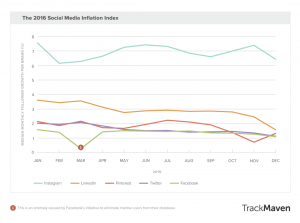Let’s say you open a brewery in the cool part of town. Whenever someone enters your establishment, you spray them with hundreds of gallons of beer (or root beer) from a fire hose, leaving them drenched and confused. The woman down the block, however, offers her customers a thoughtful pint of beer and takes time to explain how its flavors come together. Her customers leave satisfied and tell their friends about their positive experience.
This is how it goes with your company’s blog.
Don’t be the company indiscriminately spraying blog posts at people. A lot of people believe the more blog posts they pump out, the better SEO results they will achieve ipso facto. But that isn’t the case.
Blogs Benefit From A Careful Approach
The more effective approach is to create high-quality blog posts with a smart promotional strategy behind them, even if that means writing fewer posts than the sprayer. Are blogs great? Yes. Search engines thrive on fresh, relevant content, so when you write blog posts regularly, search engines will crawl your site regularly, which increases rankings. But just like beer and root beer, blogs need to be dispensed properly to ensure an enjoyable experience for the reader. And when your content is valuable and informative and you are writing for your audience’s benefits and not just for rankings, search engines will reward you.
Enhancing your posts with informative, useful content will also increase your authority and that’s a large influencer in the way Google ranks. The more blog posts you write about topics related to your business, the more credible your site becomes to search engines and your audience. To do this, focus on a specific topic that includes highly searched-for keywords pertaining to your business and industry, and then provide plenty of details that benefit your readers.
By performing keyword research on your topic ahead of time, you will be able to choose the most searched-for, on topic keywords to incorporate into your blog, which will increase your organic search rankings. When also including plenty of detail to inform and educate your readers, your blog will stand out as a reliable voice on a given topic. Your blog will attract inbound links through social media sharing and other platforms, which will naturally enhance your site’s authority.
Start Wide, Then Narrow Your Scope
Another useful strategy is to start your blog with a topic that encompasses subtopics also addressed on your website, so you can link to those pages from appropriate keywords. This type of internal link building is highly beneficial for your site’s SEO because the more relevant, internal links you have, the easier it is for search engines to crawl and index your site.
Also, through internal links, your blog visitors will be directed to your main site to find additional value in related pages, making a conversion more possible for you. As an example, a blog that discusses a lending environment with low interest rates can specifically mention auto loans, mortgages and business loans, each linking to specific product pages within the site.
After you begin posting your blogs regularly, it is helpful to set up tracking to measure your return-on-investment. Tracking blog visits, traffic sources, average inbound links per posts, social shares, conversion rates and more will provide valuable insight into your audience and the effectiveness of your blogs.
Go For Quality Over Quantity
Once you commit to blogging, make sure you implement an SEO strategy that will work for you. You’ll probably see better results from spending more time on the finer details of one blog than haphazardly cranking out three blogs in the same amount of time.
Without that smart strategy involving keyword research, informative writing, linking and blog promotion, your blog is just a drunken blob doing nothing to help your business. Kick him out and serve your customers with greater care.
(184)






